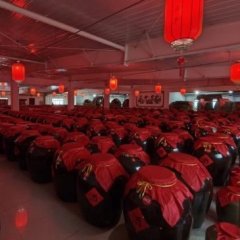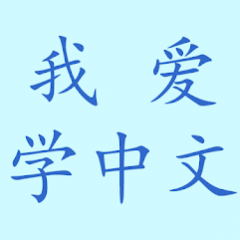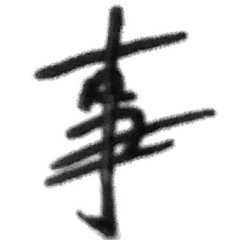-
Latest Topics
-
0
By jannesan Started
Feeling quite confident in my reading and listening abilities, I decided it is finally time to take an official language test. Since it is significantly cheaper than the HSK, I opted for taking the TOCFL reading/listening test. And because why not, I just went straight for the band C test, which upon passing it, attests a C1 or C2 level depending on the score. After taking the test, I am not too confident that I have passed it though.. I did a detailed write-up of my experience here on my blog for those interested. Has anyone here taken the TOCFL recently? How did it go? I am very curious what kind of score I will get. I would not be surprised to have failed it miserably, but deep down I am also hopeful that some of those gut-feeling answers were correct 😄 -
3
By midnightbutterfly Started
Hello! I have a final exam in my Chinese class and I need to present a speech. If anyone could grammar check what I have written I would really appreciate it! Thank you! (also if anyone has any ideas of what to add that would be great) 大家好, 今天我會談談我打工經驗。去年我想找到打工為了賺一點錢。既然我是法律學生,我就想在律師樓工作。 倒是你是學生的時後,可難找到辦公室的打工!我正要放棄,然後我的朋友這就打電話給我,他說《這家餐廳找到服務員!》我非常興奮! 從我的第一天工作起,先我的老闆介紹一下我的同事,等客戶來餐廳,再我请他们点菜。 我還不到一個星期打工,已經我打破了五個盤子了。我真是笨手笨腳! 老闆罵我,再加上他拿我的小費!服務員各賺各的小費!他小氣得沒話說! 早知道老闆的個性不好,我就沒去打工這裡。動不動就我被老闆叫我走路了。 就是我不打破那麼多盤子,我也覺得我是不好的服務生。。。 我多少學了一點,我不該做服務生! 谢谢大家! -
 1
1By zhouhaochen Started
https://english.www.gov.cn/news/202411/22/content_WS67407351c6d0868f4e8ed533.html Pretty cool. They added 9 other countries too, mostly small ones, except Japan. Very easy for Europeans to go to China now. USA, UK and Canada are the three ones not on the list yet.... -
0
By NigelZ Started
2025 HSK test dates released:https://mp.weixin.qq.com/s/O--1HiVqG5iFn5QTPKijeQ -
1
By banjo67xxx Started
My son has just switched from iPhone to Andriod (Samsung) and can't find many of his favourite apps. He's used my wife's Chinese iTunes account up until now on the iPhone, but as Google Play doesn't work in China there's no point using a VPN for it. We tried using a VPN to Taiwan & Singapore (my personal VPN is offline right now) and logging in to the Galaxy Store, but it immediately detects that we're in Zürich even without the SIM card. There surely must be some 老外 with Android phones Samsungs even that they bought overseas and want to use the local apps in China. How did you download them? -
1
By Adil khan Started
Hi there, I have a problem.I am creating account in CSC scholarship, while creating account there is a requirement,they want a validation code but I don't know concerning, could you please help me... -
1
By NigelZ Started
There were around 500 test takers all over the world.https://mp.weixin.qq.com/s/oOhPNzUMp2Va0sC50wh2SQ -
 7
7By TaxiAsh Started
I was watching snooker last night, and a discussion about the pronunciation of Xiao Guodong started. ( 肖国栋) The short exchange here was about his family name, but in the show, I noticed they pronounce guo as gu - but that's an aside... A native speaker said I and someone else were wrong with the pronunciation. What's your take on it? -
0
By PassionforChJap Started
I'm looking for the textbook (and the audio): 社會大學 Speech Series: Real World, used at ICLP in Taiwan. If someone could help me, it would be great! -
3
By MadmaxxxMaSiDe Started
Actually I‘m using a mobility scooter and lot a wheelchair, but the same rules apply when it comes to the battery. So on China Eastern Airlines one is allowed one battery up to 300 WH for mobility aids. All other batteries must not exceed 100 WH. Today I called 12306 to ask about advanced notification of the mobility scooter before booking a high Speed train to Hangzhou. She told me that this would be only possible ig my battery didn‘t exceed the 100 WH. I am pretty sure, that she didn‘t realize that other rules apply for mobility aids. Then again, I don‘t want to go to the train station without any confirmation about the battery. Does anyone have experiences with Electric mobility aids on Chinese Highspeed trains or has seen at least an Electric Wheelchair on a train. I just can‘t believe that they wouldn‘g let anyone in an Electric wheelchair board.
-
-
Blog Entries
-
 By Explore Chinese in HSK5 Final Prep - Mnemonic Memorization0 comments
By Explore Chinese in HSK5 Final Prep - Mnemonic Memorization0 comments -

-
 By Explore Chinese in HSK5 Final Prep - Mnemonic Memorization0 comments
By Explore Chinese in HSK5 Final Prep - Mnemonic Memorization0 comments -
 By Explore Chinese in HSK5 Final Prep - Mnemonic Memorization0 comments
By Explore Chinese in HSK5 Final Prep - Mnemonic Memorization0 comments -
 0 comments
0 comments
-
-
Recent Posts
-
-
Popular Contributors
-
1
 zhouhaochen
zhouhaochen
5 -
2
 Larry Language Lover
Larry Language Lover
3 -
3
 becky82
becky82
2 -
4
 Tomsima
Tomsima
2 -
5lordsuso
2
-

